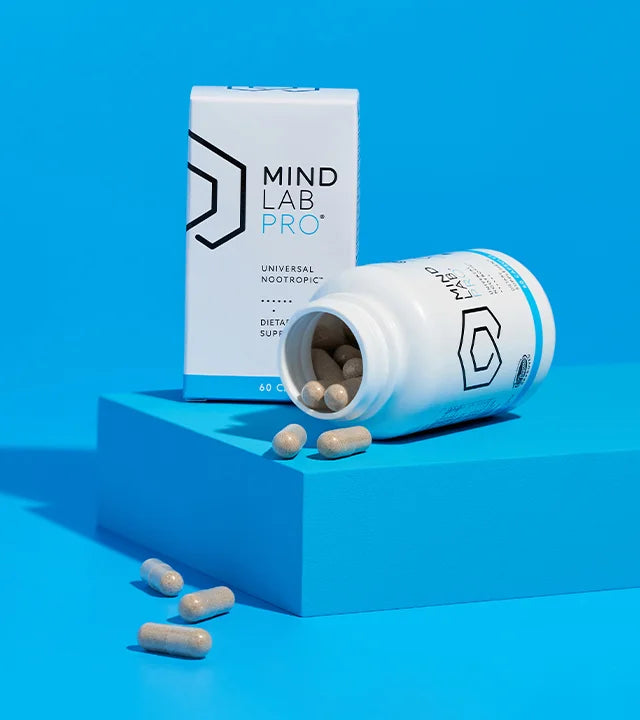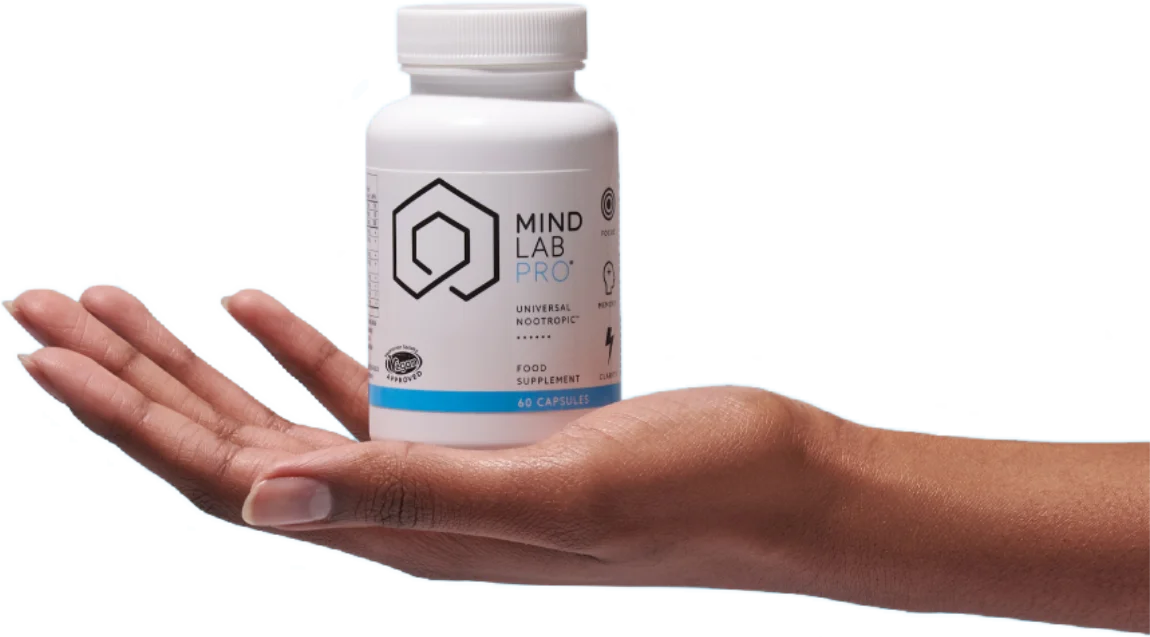Adaptogens are herbs and natural substances that help the body adapt to stress and maintain internal balance. Pregnancy is associated with stress. But don't go reaching for those adaptogens just yet. Modern science generally recommends avoiding adaptogens during pregnancy.
Why the caution? Several adaptogens can influence hormones, the stress axis (HPA), blood pressure, or uterine muscle activity -- systems that need careful balance in pregnancy. In this article, we'll touch on some of the adaptogens linked to pregnancy. But the quick answer: It's best to avoid adaptogens altogether during pregnancy to protect baby and mother.
Key Takeaways
- Adaptogens are a class of herbs and mushrooms that help to fight the negative effects of stress while enhancing mind-body performance.
- Adaptogens are believed to have a non-specific overall effect of helping to restore normal physiological functioning.
- High-quality, pregnancy-specific research studies on adaptogens are rare; the vast majority of doctors advise against taking them during pregnancy.
- There are historical accounts of some adaptogens, like Ashwagandha and Ginseng, used for pregnancy in traditional herbalism practices.
- Best practice: If pregnant or trying to conceive, skip adaptogens and speak with your OB/midwife about evidence-supported options for nausea, good quality sleep, mood, and energy.
Disclaimer
This article is provided for educational purposes only and is not intended as medical advice. Adaptogens and other herbal supplements have not been proven safe for use during pregnancy, and many have potential risks for both mother and baby. Always consult your doctor before taking any herb, supplement, or medication during pregnancy. Pregnant women should not self-prescribe adaptogens while pregnant or breastfeeding. Instead consider a prenatal vitamin with crucial pregnancy nutrients like folic acid.
Adaptogens and Pregnancy: An Introduction
Adaptogens are a class of botanicals (and some adaptogen mushrooms) traditionally used to help the body adapt to physical and emotional stress, promoting steadier energy, mood, and performance.
Adaptogens are considered normalizing. They tend to modulate (keep in normal range), rather than simply increase or decrease, key physiological systems involved in stress. Adaptogens exert a natural and beneficial process on overall wellness -- but keep in mind that doesn't mean they are suitable for use during pregnancy.
Adaptogens work to help with:
- Stress-busting, fatigue reducing: Improvements in perceived stress, energy, and burnout measures in several randomized trials and reviews. Discover today's best stim-free energy formulas
- Metabolic support: Modest assistance with blood sugar balance, appetite/craving, or weight-management behaviors in specific contexts.
- Cognition under stress: Better attention, vigilance, and mental endurance during demanding tasks or sleep restriction (varies by herb and dose). Find out more about brain-boosting nootropics
- Mood & sleep: Reduced anxiety symptoms and improved sleep quality have been reported for certain adaptogens.
- Exercise performance: Small but meaningful benefits for perceived exertion, recovery, and (in some cases) endurance capacity in stressful situations. Explore adaptogen herbs for athletes
- Immune function: Top adaptogens for immune system performance help to reinforce our defenses in several way.
- Inflammation modulation: Some adaptogens regulate the immune response to support more balanced inflammation.
Check out our Ultimate List of Adaptogens article
How Adaptogen Activities May Affect Pregnancy
Pregnancy is a highly regulated state that requires a delicate balance. Many adaptogens act on pathways that are crucial during gestation, which is why most experts advise caution or avoidance. Key mechanisms include:
- HPA-axis modulation (cortisol levels): Adaptogens can help with moderating hormones related to stress (like cortisol). While good for stress in non-pregnant adults, anything affecting how much cortisol is released may affect fetal development and maternal function.
- Neurotransmitter effects: Influences on neurotransmitters GABA, dopamine, serotonin, and norepinephrine can change arousal, mood, and sleep -- systems that also modulate appetite, blood pressure spikes, and uterine tone.
- Endocrine interactions: Some adaptogens touch thyroid hormone and sex-hormone pathways or binding proteins; hormone shifts in pregnancy are tightly choreographed and sensitive to disruption.
- Immune modulation: Adaptogens can shift innate/adaptive responses; pregnancy already features a finely tuned immune state to support fetal tolerance. Discover ultramodern immune support supplements
- Metabolic actions: Effects on insulin sensitivity, glucose handling, and AMPK signaling can alter maternal–fetal energy balance.
- Vascular effects: Impacts on blood pressure, heart rate, or nitric-oxide pathways may conflict with pregnancy’s cardiovascular demands.
- Uterine smooth muscle: Certain botanicals may affect uterine muscle function, potentially raising concerns about contractions or labor timing.
Key Takeaway: Adaptogens can be valuable for stress and performance in non-pregnant adults, but their multi-system actions overlap with critical pregnancy pathways. Because high-quality pregnancy safety studies on adaptogens are limited, it is best to avoid adaptogens during pregnancy.
Adaptogens Used in Traditional Herbalism
Caution
Do not take any of these adaptogens during pregnancy or breastfeeding. This section is included only to give historical context of adaptogens' use in herbalism traditions and links to pregnancy, along with modern warnings against their use in pregnancy.
Ashwagandha (Withania somnifera)

A cornerstone of Ayurveda for 3,000 years, ashwagandha is classified as a Rasayana (rejuvenative) used to restore vitality, ease anxiety, improve sleep, and bolster resilience during convalescence and chronic stress.
Context in Pregnancy. Despite its long traditional use for strength and recovery, modern references advise avoiding ashwagandha in pregnancy. Contemporary fact sheets cite reports of potential abortifacient effects and hormone modulation; as such, ashwagandha is generally not recommended for pregnant people unless specifically prescribed by a clinician who knows the patient’s history.
Panax Ginseng (Asian/Korean Ginseng)

In Traditional Chinese Medicine, Panax ginseng is a premier qi tonic for vitality, longevity, and recovery from depletion. For centuries, it has been used as part of the herbal medicines of China, Korea, and Japan to strengthen stamina, focus, and immune resilience.
Context in Pregnancy. Authoritative summaries urge caution or avoidance in pregnancy, particularly in the first trimester. NCCIH notes that some studies suggest Asian ginseng may be unsafe in pregnancy and that certain ginsenosides have caused birth defects in animal models; a systematic review likewise recommends caution.
Eleuthero (Eleutherococcus senticosus; “Siberian Ginseng”)

Widely used in Russian and Chinese herbal traditions (though not a true ginseng), eleuthero has been employed to combat fatigue, improve work capacity, and enhance stress tolerance in athletes, soldiers, and laborers.
Context in Pregnancy. Evidence in pregnancy is insufficient. Modern monographs state that safety data are lacking and advise against use during pregnancy (often listing it as contraindicated) due to theoretical developmental risks and hemodynamic effects; lactation data are also sparse.
Rhodiola rosea (Golden/Arctic Root)

In Russian, Scandinavian, and Tibetan traditions, rhodiola has been used to enhance stamina, reduce fatigue, and sharpen cognition -- especially in harsh climates and at high altitude. It is considered an adaptogen performance enhancer, prized by athletes for boosting vitality under stress.
Context in Pregnancy. Because high-quality pregnancy studies are lacking and immuno/hormonal effects are possible, modern references advise avoiding rhodiola during pregnancy. Some overviews explicitly recommend pregnant and breastfeeding individuals not use it.
Did you know? While not advisable for pregnancy, rhodiola may have a role in women's herbal menopause. It has been investigated as an adaptogen for helping with perimenopause and menopause.
Discover Bacopa Monnieri brainpower benefits
Schisandra chinensis (“Five-Flavor Berry”)

A classic tonic in TCM and used in Russian herbalism, schisandra has been valued for longevity, liver support, endurance, and mental clarity. Traditionally, it has been used to conserve vitality under stress and exertion.
Context in Pregnancy. Modern sources advise avoiding schisandra in pregnancy because its constituents may stimulate uterine contractions (historically even used to promote or prolong labor), potentially leading to increased risk for pregnancy complications.
Best Nootropic Stack With Adaptogens
Mind Lab Pro®

Mind Lab Pro is today's top nootropic supplement with adaptogens. The "Universal Nootropic," it is designed to enhance the entire brain via six distinct pathways. The result is "100% Brainpower" -- a state where your brain function is firing on all cylinders, with enhanced focus, attention, memory, mental energy, mood, stress resistance and more.
MLP should not be taken during pregnancy or breastfeeding. However, once breastfeeding is no longer on the table, new mothers may benefit from MLP's clean-and-natural brain-boosting benefits.
Mind Lab Pro® (MLP) Ingredients: Citicoline (CDP Choline) dosage 250mg per serving, Phosphatidylserine (PS) 100mg (from sunflower lecithin), Bacopa monnieri 150mg (standardized extract, 24% bacosides), Organic Lion's Mane Mushroom 500mg (fruit and mycelium), Maritime Pine Bark Extract 75mg (95% proanthocyanidins), N-Acetyl L-Tyrosine 175mg, L-Theanine 100mg per serving, Rhodiola rosea 50mg (3% rosavins and 1% salidrosides), NutriGenesis® Vitamin B6 (2.5 mg), Vitamin B9 (100 mcg), Vitamin B12 (7.5 mcg)
Mind Lab Pro is backed by three published human clinical trials:
- MLP® for 30 days accelerated information processing speed.(1)
- MLP® for 30 days boosted immediate memory and delayed recall memory.(2)
- MLP® for 60 days helped different parts of the brain work together efficiently.(3)
Learn more about the Mind Lab Pro® research studies
If you're a new mother who is finished with breastfeeding, MLP® is a strong choice for supporting cognitive performance. This stack really works (according to science).

Summary: Adaptogen Pregnancy Risks
Adaptogens like Ashwagandha, Panax Ginseng, Eleuthero, Rhodiola, and Schisandra each have long histories in traditional medicine, including women's hebal medicine, to boost stamina, reduce stress, fight fatigue, and support the body's ability to maintain resilience.
But are adaptogens safe? Overall, yes. However, when it comes to pregnancy, the standards are very different. Even though some of these herbs were occasionally referenced in historical contexts for vitality or recovery, modern science has not established their safety during pregnancy.
Adaptogens are best left for before or after pregnancy -- not during. If you are pregnant or planning to conceive, the safest course for optimal pregnancies is to avoid adaptogens altogether and instead work with your healthcare provider to explore evidence-based, pregnancy-safe options for managing stress, energy, and wellness.
References
- Utley A, Gonzalez Y, Imboden CA. The Efficacy of A Nootropic Supplement on Information Processing in Adults: A Double Blind, Placebo Controlled Study. Biomed J Sci & Tech Res 49(1)-2023. Link
- Abbott-Imboden C., Gonzalez Y., Utley A. (2023). Efficacy of the nootropic supplement Mind Lab Pro on memory in adults: Double blind, placebo-controlled study. Human Psychopharmacology: Clinical and Experimental, e2872. Link
- O’Reilly, D., Bolam, J., Delis, I., & Utley, A. (2025). Effect of a Plant-Based Nootropic Supplement on Perceptual Decision-Making and Brain Network Interdependencies: A Randomised, Double-Blinded, and Placebo-Controlled Study. Brain Sciences, 15(3), 226. Link




